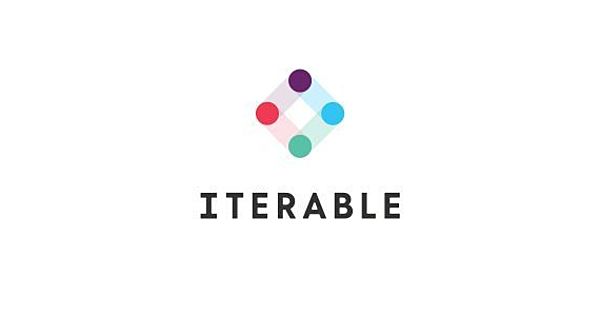Welcome to the ultimate showdown in email marketing tools for 2024 – GetResponse vs Iterable. You’re here because you want the best for your marketing campaigns, and we’re here to help you make an informed decision. In a world where email marketing remains king, choosing the right tool can be the difference between a booming business and a missed opportunity. So, let’s dive into this head-to-head comparison and find out which platform will take your marketing game to the next level!
| GetResponse | Iterable |
|---|---|
 |  |
| G2 Score – 4.2 out of 5 stars | G2 Score – 4.4 out of 5 stars |
| TrustRadius Score -8.0 out of 10 | TrustRadius Score – 8.6 out of 10 |
Ease of Use
When we talk about ease of use in email marketing tools, it’s all about how simple and intuitive the platform is for the user, regardless of their technical expertise. This includes the initial setup, day-to-day operations, and troubleshooting. The user experience should be smooth and hassle-free, allowing marketers to focus more on strategy and less on figuring out the software.
GetResponse: Designed for Simplicity
GetResponse has made a name for itself by offering a platform that is as straightforward as it is powerful. This balance of simplicity and functionality is what makes it appealing, especially to those who are new to email marketing or have limited time to learn a complex system.
One of the first things you notice with GetResponse is its clean and uncluttered interface. The design is intuitive, which means new users can quickly find their way around without feeling overwhelmed. There’s a clear focus on making the user experience as smooth as possible. From the dashboard to the campaign setup, everything is laid out in a way that makes sense, even for a beginner.
The drag-and-drop editor in GetResponse is a standout feature. It’s a tool that makes email creation not just easy but enjoyable. You don’t need to know a single line of coding to create professional-looking emails. With a wide variety of templates at your disposal, you can choose one that fits your campaign’s vibe and customize it to your liking with just a few clicks and drags. It’s all about making the process as seamless as possible.
Another aspect where GetResponse excels is in its educational resources. They understand that not every user comes with a background in email marketing, so they provide a wealth of tutorials, guides, and support materials. These resources are designed to help users get the most out of the platform, covering everything from basic setup to advanced campaign strategies.
Iterable: Catering to Advanced Users with an Intuitive Touch
Iterable, while known for its advanced features, doesn’t compromise on user experience. It’s designed for marketers who need more from their email marketing tool, yet it manages to maintain an approachable interface.
The first thing you’ll notice with Iterable is its emphasis on streamlined workflows. Even though the platform offers complex functionalities, these are structured in a way that doesn’t intimidate the user. This is crucial for a tool that’s designed for sophisticated marketing strategies. You can set up multi-channel campaigns, automate intricate sequences, and manage large-scale operations without feeling lost in the software.
Customization is another area where Iterable shines. The platform allows you to tailor almost every aspect of your campaigns. But this customization doesn’t come at the cost of usability. The options are laid out clearly, and changes can be made with ease, ensuring that even the most complex campaigns are manageable.
Support is a critical component of ease of use, and Iterable understands this. Their responsive support team is a key feature, ready to assist users through any complexities they might encounter. This is complemented by Iterable’s commitment to education, offering a range of learning resources, from webinars to detailed case studies, all aimed at helping users maximize their use of the platform.
Automation Capabilities
In the dynamic world of email marketing, automation stands as a cornerstone for efficiency and effectiveness. It’s not just about sending emails automatically; it’s about creating a system that engages your audience with the right message at the right time without manual intervention. This capability is crucial in scaling marketing efforts and personalizing customer experiences.
GetResponse: Streamlining Email Campaigns with User-Friendly Automation
GetResponse has built its reputation around providing robust automation tools that are accessible even to those who are new to email marketing. The platform’s approach to automation focuses on simplifying complex processes, making it easier for users to create sophisticated campaigns.
The heart of GetResponse’s automation is its autoresponder functionality, which allows marketers to schedule emails based on specific timelines or triggers. This feature is incredibly user-friendly, enabling you to set up a sequence of emails – like welcome series, follow-ups, or educational courses – that automatically send based on subscriber actions.
Beyond the basic autoresponder, GetResponse offers advanced segmentation capabilities. This feature allows marketers to send highly targeted emails based on subscriber data and behaviors. It’s a powerful way to tailor your communication to different segments of your audience, ensuring that each group receives the most relevant and engaging content.
Additionally, GetResponse’s visual automation builder is a standout feature. It lets users create and visualize the flow of their email campaigns using a drag-and-drop interface. This visual approach demystifies the process of setting up complex automation workflows, making it easier to design and understand the journey you want your subscribers to take.
Iterable: Advanced Automation for Data-Driven Marketers
Iterable takes automation to a sophisticated level, offering features that cater to the needs of data-driven marketers working in medium to large-sized businesses. The platform’s strength lies in its ability to handle complex and nuanced marketing strategies.
Iterable excels in multi-channel automation, which goes beyond email to encompass SMS, push notifications, and other channels. This broader approach allows marketers to create cohesive and synchronized campaigns across various platforms, enhancing the overall customer experience.
The use of AI-powered optimization in Iterable is a game-changer. The platform uses artificial intelligence to determine the best times and content for your messages. This level of optimization ensures that your communications are not only timely but also highly relevant to each recipient, potentially increasing engagement and conversions.
Behavioral triggering in Iterable allows for the creation of highly personalized email sequences. Emails can be triggered by specific actions taken by users, such as browsing a particular product or abandoning a cart. This functionality enables marketers to craft responsive campaigns that react in real-time to user behavior, making each interaction more meaningful and likely to convert.
Iterable’s scalability in workflow management is another significant advantage. The platform can handle large volumes of emails and complex sequences without sacrificing performance. This makes it an ideal choice for businesses with large customer bases or those who run extensive, intricate marketing campaigns.
Analytics and Reporting
In the landscape of email marketing, analytics and reporting are not just about gathering data; they are about extracting meaningful insights to inform and refine your strategy. Understanding how your audience interacts with your emails can dramatically enhance your campaigns’ effectiveness, leading to higher engagement and conversions. Let’s delve into how GetResponse and Iterable equip you with analytical tools and what makes them distinctive.
GetResponse: Comprehensive and Accessible Analytics for Every Marketer
GetResponse has positioned itself as a platform that offers detailed yet accessible analytics, catering to marketers who need a straightforward approach to data. The focus is on presenting information in an easily digestible format, ensuring that even those with minimal analytical background can make data-driven decisions.
The reporting dashboard in GetResponse is designed for clarity and ease of use. It presents a quick overview of your campaign’s performance, displaying essential metrics like open rates, click-through rates, and more. This snapshot view is invaluable for marketers who need to make quick assessments of their campaigns’ effectiveness.
When it comes to email analytics, GetResponse covers all the bases. It tracks standard metrics such as opens, clicks, and bounces, but it also delves into more detailed statistics. You can see which links in your emails are getting the most attention, how different segments of your audience are interacting with your messages, and even track the performance of specific email campaigns over time.
Conversion tracking is another area where GetResponse shines. It goes beyond email interactions to track how these interactions lead to actual conversions, whether that’s a sale, a sign-up, or another key action. This feature is crucial for understanding the return on investment (ROI) of your email campaigns and for making informed decisions about future marketing strategies.
The platform also offers segmentation based on data. This means you can use the insights gathered from your reports to segment your audience more effectively, ensuring that future campaigns are even more targeted and relevant.
Iterable: Advanced Analytics for In-Depth Campaign Analysis
Iterable steps into the realm of analytics with a focus on providing comprehensive, in-depth data for marketers who thrive on granular analysis. The platform is tailored for those who need more than just surface-level insights and are looking to dive deep into the nuances of their campaigns.
The customizable dashboards in Iterable are a standout feature. Unlike the one-size-fits-all approach, Iterable allows you to tailor your reporting dashboard to focus on the metrics that matter most to you. This customization is particularly beneficial for businesses with specific analytical needs or those who want to keep a close eye on particular aspects of their campaigns.
A/B testing and optimization tools in Iterable are robust and sophisticated. You can test different elements of your emails, from subject lines to content, and the platform provides detailed insights on what works best. This level of testing is invaluable for refining your campaigns and ensuring each element is optimized for maximum engagement and conversion.
Lifecycle analysis is another area where Iterable excels. This feature enables you to track how your customers interact with your brand throughout their entire lifecycle, from the first contact to post-purchase. Understanding these interactions in detail allows for more strategic long-term planning and helps in crafting campaigns that resonate with customers at different stages of their journey.

Related: Check out our free SEO suite

Integration and Compatibility
In the contemporary digital marketing landscape, the ability of an email marketing tool to integrate seamlessly with other software and platforms is not just an added benefit; it’s a necessity. Integration enhances the functionality of the email marketing tool, enabling a more cohesive and efficient workflow. This is particularly important in an environment where marketers are using a variety of tools for different aspects of their digital strategy. Let’s delve into how GetResponse and Iterable approach integration and compatibility.
GetResponse: Broad and Accessible Integration Options
GetResponse has made significant strides in ensuring its platform can easily integrate with a wide range of other tools and services. This focus on broad integration caters to the diverse needs of its users, ranging from small businesses to more established organizations.
A significant aspect of GetResponse’s integration capabilities is its focus on e-commerce. The platform allows for straightforward connections with popular e-commerce platforms like Shopify and Magento. This integration is crucial for businesses that rely on email marketing to drive sales, as it enables them to seamlessly link their online store with their marketing campaigns.
Another key area where GetResponse excels is in its CRM integration. The ability to sync with major CRM systems like Salesforce is a game-changer for businesses that want to align their email marketing efforts with their broader sales processes. This synchronization ensures that the marketing and sales teams are on the same page, leading to more targeted and effective campaigns.
Social media tools also play a significant role in GetResponse’s integration capabilities. In an era where social media marketing is pivotal, the ability to integrate with these platforms ensures a unified marketing strategy across different channels.
For users with more specific needs, GetResponse offers an API for custom integration. This flexibility allows businesses to tailor integrations to their unique requirements, ensuring that the email marketing tool fits seamlessly into their existing tech stack.
Iterable: Advanced Integration for Complex Marketing Needs
Iterable approaches integration with a focus on advanced capabilities, catering to medium to large businesses with more complex marketing needs. The platform’s integration features are designed to provide seamless connections, particularly for organizations that require deep integration across multiple systems.
The comprehensive API offered by Iterable stands out in its ability to facilitate deep integrations with a vast array of tools and systems. This extensive API capability is essential for businesses that rely on a wide range of software and services, as it allows for a high degree of customization and flexibility in how these tools work together.
Data management integrations are another area where Iterable excels. Connecting with data management platforms enables businesses to leverage customer data effectively across all their marketing channels. This integration is vital for creating personalized and targeted marketing campaigns based on detailed customer data.
Iterable’s advanced e-commerce integrations go beyond basic functionalities. The platform enables more sophisticated integrations for businesses that require a seamless online shopping experience. This is particularly beneficial for e-commerce businesses that want to integrate their email marketing efforts closely with their online sales strategies.
The platform’s capacity for customizable integrations is a defining feature. This allows businesses to tailor Iterable’s integrations to their unique ecosystem, ensuring that the email marketing tool aligns perfectly with their operational needs.
Pricing and Value for Money
| GetResponse | Basic Plan: Starting from $15/month for email marketing, autoresponders, unlimited landing pages, and basic segmentation. Plus Plan: Starting at $49/month, including automation, webinars (up to 100 participants), and contact scoring. Professional Plan: Starting at $99/month, offering advanced automation, webinars (up to 300 participants), and paid webinars. Max Plan: Custom pricing, providing advanced features like transactional emails, dedicated support, and single sign-on (SSO). |
| Iterable | Iterable does not publicly list its pricing, as it typically offers custom pricing based on the specific needs of a business. The platform is designed for larger companies with advanced needs in cross-channel marketing campaigns, including email, SMS, push notifications, and more. Features usually include workflow automation, segmentation, A/B testing, and personalized messaging. Interested users need to contact Iterable directly for a customized quote based on their scale and requirements. |
In the world of email marketing, the pricing structure of a tool can be as important as its features. It’s not just about the cost; it’s about what you get for your investment. An ideal email marketing solution should provide a balance of features, scalability, and affordability, ensuring that businesses of all sizes can leverage its benefits without breaking the bank. Let’s explore the pricing strategies of GetResponse and Iterable and assess their value for money.
GetResponse: A Cost-Effective Solution for Diverse Needs
GetResponse positions itself as a budget-friendly option in the email marketing space, making it a popular choice for small to medium-sized businesses. The platform’s pricing strategy is designed to cater to a wide range of needs while remaining accessible to businesses with limited marketing budgets.
One of the key aspects of GetResponse’s pricing is its tiered plan structure. This approach allows businesses to select a plan based on the size of their email list and the features they need. Starting from a basic plan for those with minimal needs, the options scale up to more advanced plans offering additional features. This tiered system ensures that businesses only pay for what they need, avoiding the one-size-fits-all trap.
Another important element of GetResponse’s pricing is its feature-based approach. As businesses move up the pricing tiers, they unlock more advanced features. This structure allows for gradual scaling, ideal for growing businesses that need more capabilities as they expand.
GetResponse also offers a free trial, allowing potential users to test the platform before committing. This trial period is crucial for businesses to assess whether the tool aligns with their needs and expectations.
For those willing to commit long-term, GetResponse provides discounts on annual plans. This option can lead to significant savings compared to the monthly payment option, making it a cost-effective choice for businesses ready to integrate GetResponse into their long-term strategy.
Iterable: Premium Pricing for Comprehensive Features
Iterable takes a different approach to pricing, targeting medium to large businesses with more sophisticated email marketing needs. The platform’s pricing reflects its focus on providing a comprehensive set of advanced features.
Iterable’s pricing structure is based on custom pricing, which is tailored to the specific needs and scale of each business. This customization ensures that businesses only pay for the features and capabilities they require, making it a flexible option for organizations with specific needs.
The platform’s all-in-one package is a significant selling point. While the cost is higher than some competitors, Iterable offers an extensive range of features, including advanced automation and multi-channel marketing. This comprehensive approach provides significant value for businesses looking to implement sophisticated, integrated marketing strategies.
Scalability is another key factor in Iterable’s pricing. The platform is designed to grow with your business, making it a long-term investment. As your marketing needs evolve, Iterable can adapt, providing continued value over time.
Iterable’s focus on ROI is central to its pricing strategy. The platform’s advanced features and integrations are designed to deliver a high return on investment, making the higher price point justifiable for businesses that fully utilize its capabilities.
Conclusion:
When it comes down to GetResponse vs Iterable for your email marketing needs in 2024, the choice largely depends on your specific business requirements and goals. Both platforms offer powerful features, but they cater to different audiences. GetResponse shines with its user-friendly interface, affordable pricing, and a strong focus on ease of use and simplicity. It’s an excellent choice for small to medium-sized businesses or those just starting with email marketing, offering a good balance of functionality and affordability.
Iterable, on the other hand, stands out with its advanced automation features, comprehensive multi-channel capabilities, and deep analytics. It’s more suited for medium to large businesses or those requiring sophisticated, data-driven marketing strategies. The higher price point reflects its advanced features and scalability. Remember, the best tool is the one that aligns with your business objectives and enhances your marketing efforts. Take the time to assess your needs, try out free trials or demos, and make an informed decision that will propel your email marketing to new heights in 2024.
Read Next
- The Role of Visuals in Email Marketing: Enhancing Engagement with Images and GIFs
- Email Marketing for Subscription-Based Services
- Crafting Compelling Email Subject Lines: Tips and Tricks for Higher Open Rates
- The Importance of Deliverability in Email Marketing: Ensuring Your Messages Reach the Inbox
- Email Marketing for Events and Webinars: Boosting Attendance and Engagement





















